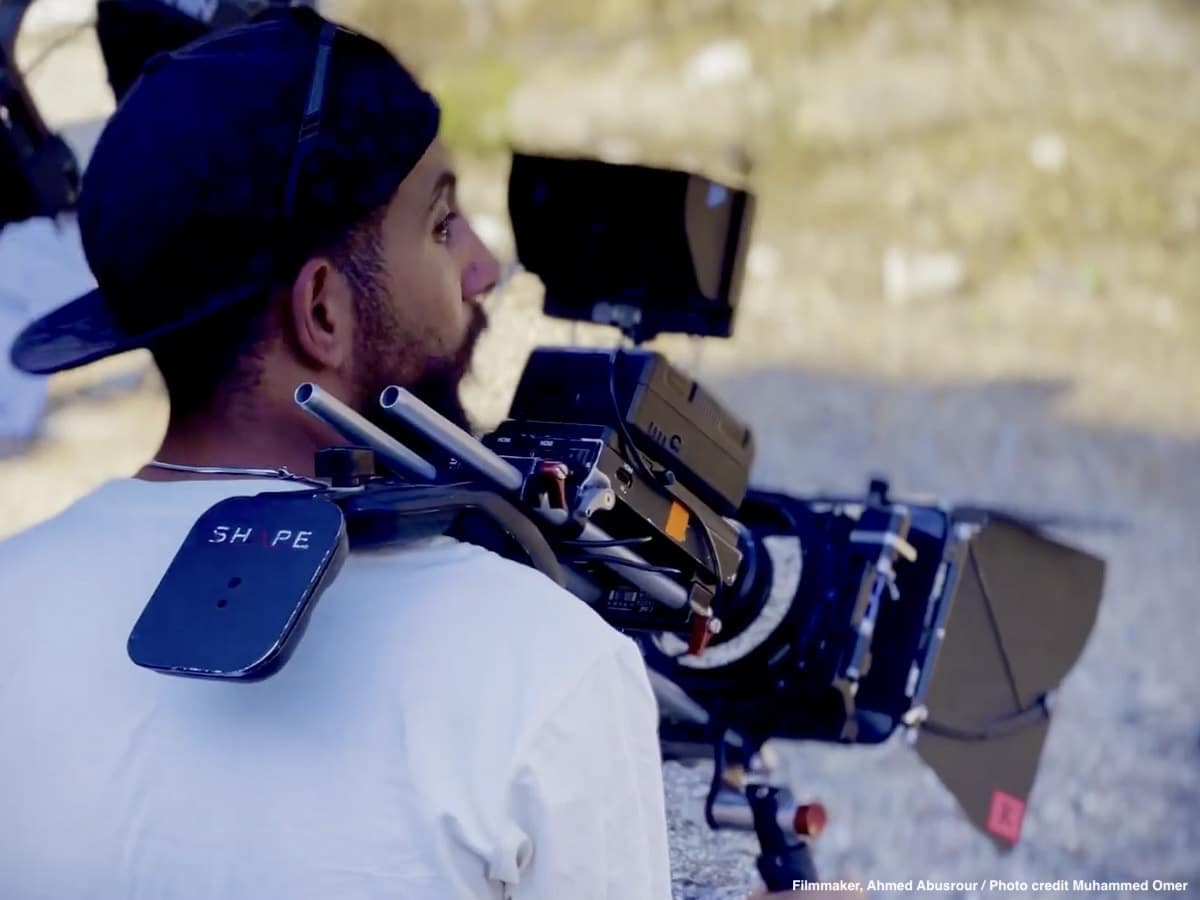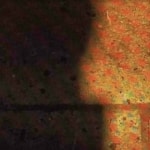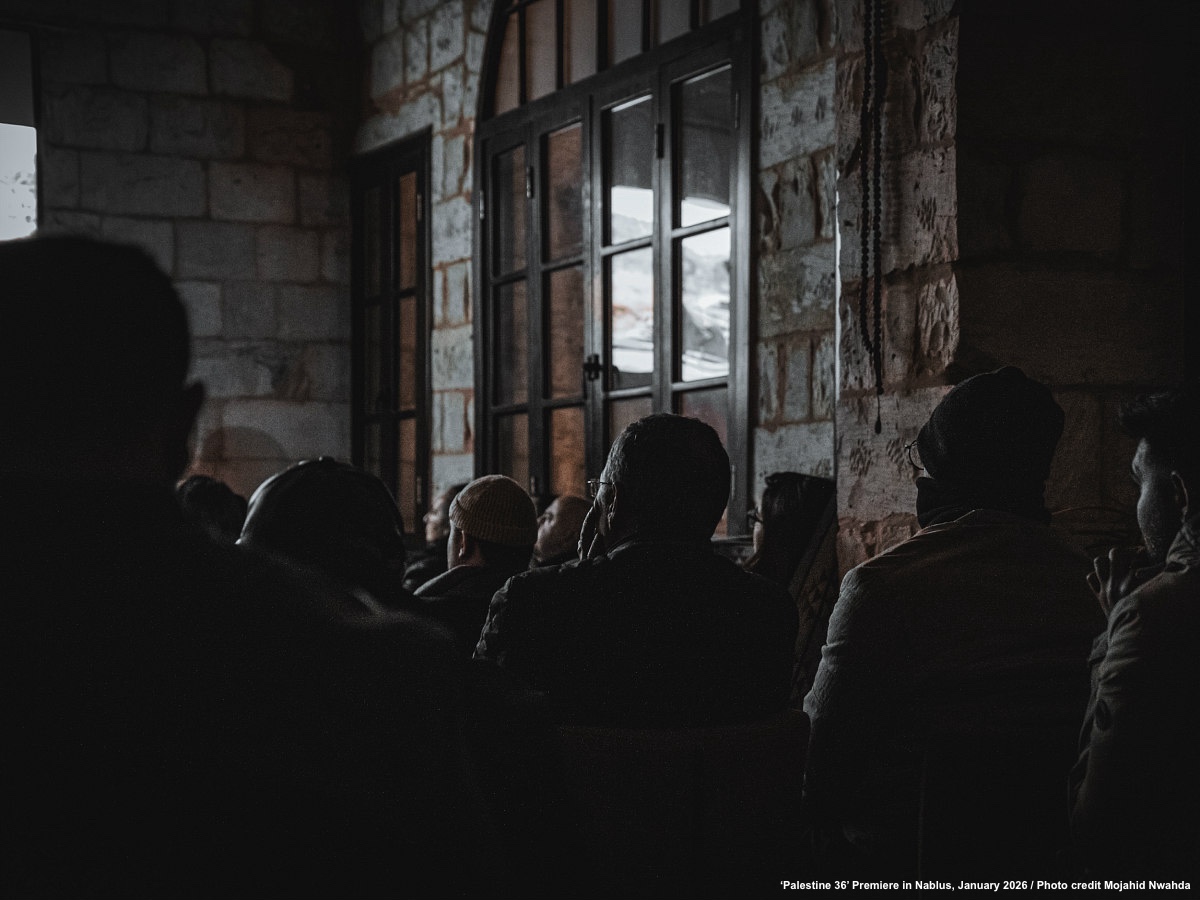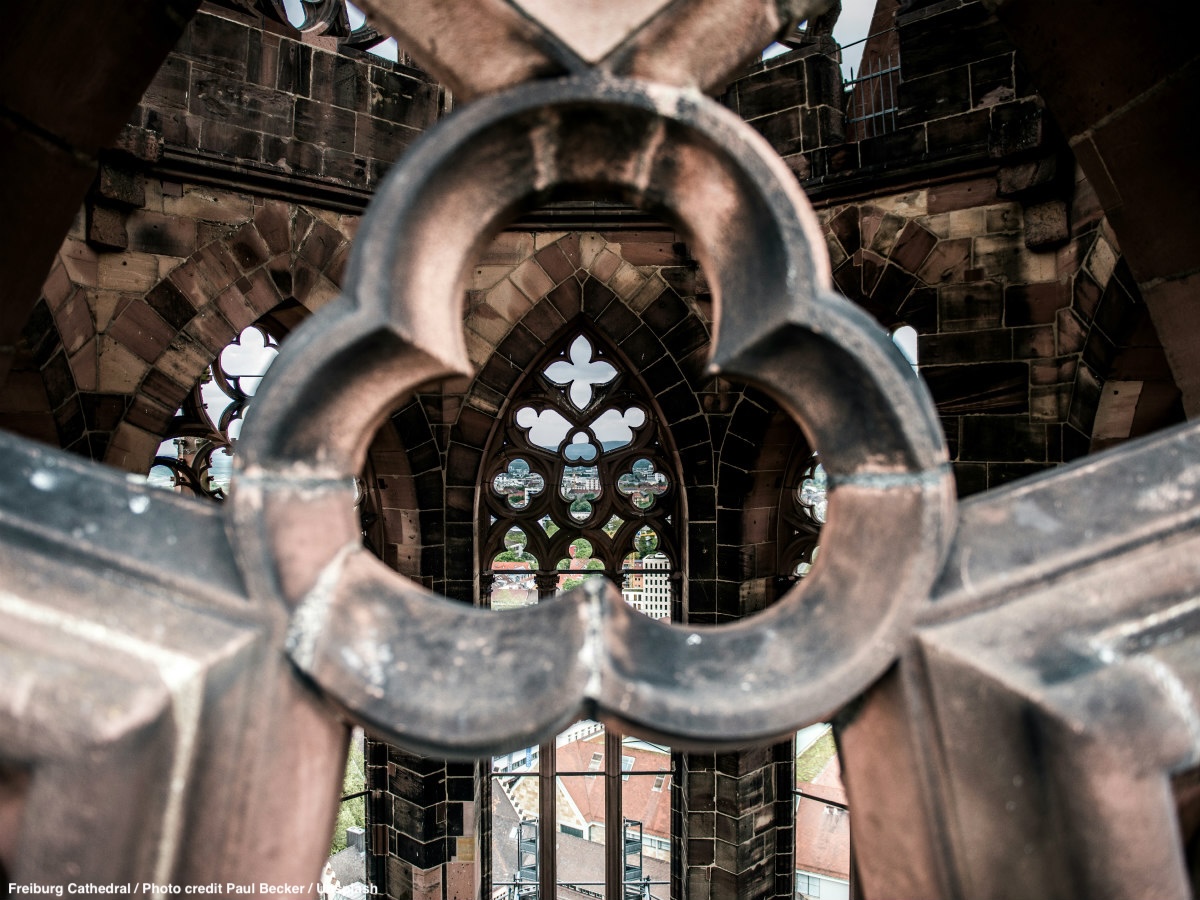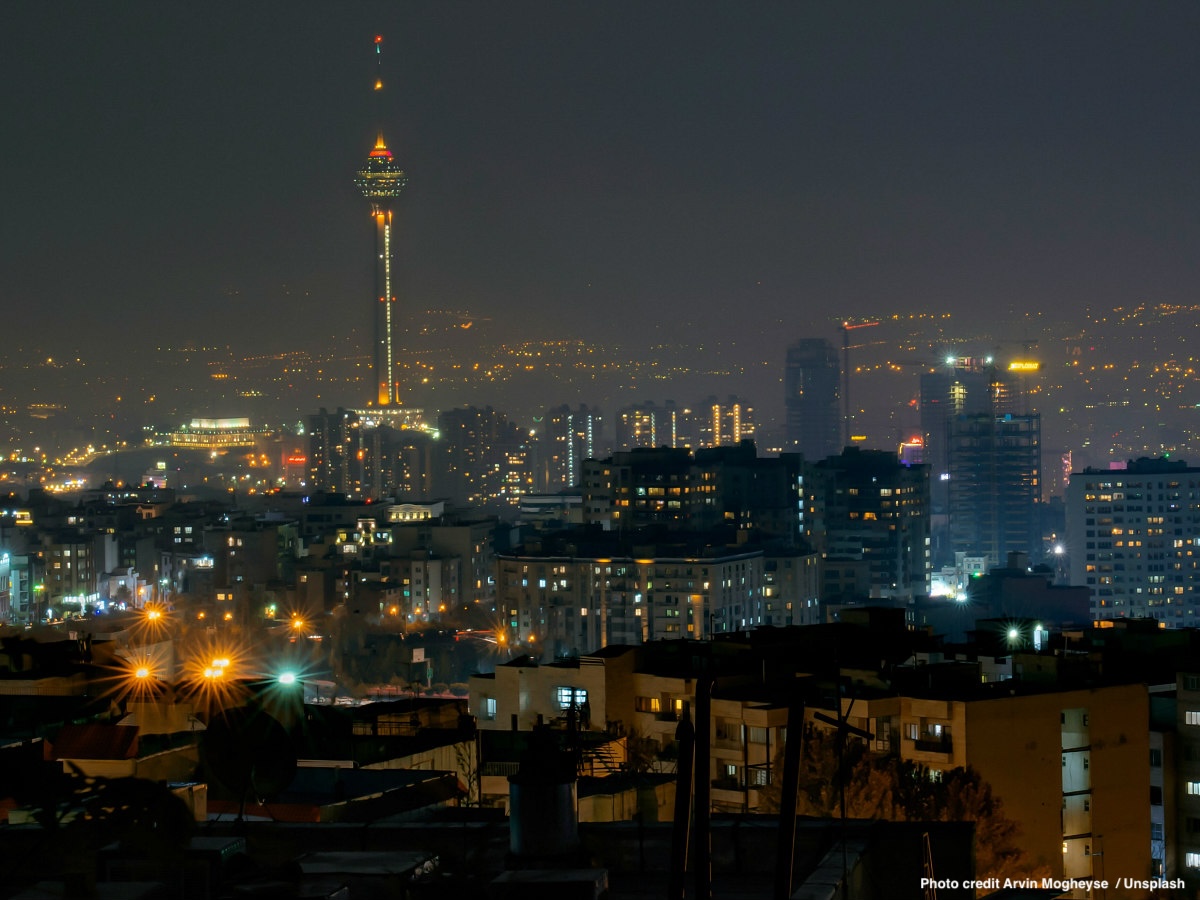Listen to the audio version of this article (generated by AI).
My name is Afaf. I’m the author of a dozen books and a professional composer for major TV shows. Two years ago, I founded a small but mighty grassroots organization in the West Bank called The Cultural Salon. While many local and international initiatives offer much-needed community arts and culture programs for artists, there’s a gap we fill — we identify and mentor Palestinian musicians, writers, filmmakers, and creative individuals who are exceptionally gifted, and create ambitious, relevant art and culture in the West Bank.
They inspired me to start the only peer-to-peer, artist-to-artist organization focused on reversing the cultural brain drain in the West Bank.
I’m fortunate to have built a career as an artist in Europe without creative compromises. Like many creatives in the West, I never applied for grants. I’ve carved out a commercial career instead, writing books for publishers like HarperCollins, and composing custom soundtracks for studios like HBO in Hollywood.
Why spend a week writing an arts fund proposal when you can spend that same week writing a pitch for a literary agent, or composing music to share with a filmmaker? Similarly, why should Palestinian artists in the West Bank rely solely on institutional funding and their public audiences, rather than also reaching wider commercial audiences via record labels or book publishers, both in the Western countries and in regional creative hubs like Beirut or Cairo?
There’s a lot of international funds for public art programs with a focus on psycho-social benefits for women and kids, specifically, and trauma relief. But what if someone goes through the public arts system and flourishes beyond the trauma relief remit? What happens if a serious poet, musician, or film director comes out of this system?
There’s a notable lack of professional culture structure, in terms of an industry, in the West Bank — for well over 3 million people, there are two record labels, two commercial art galleries, and one poetry-focused book publisher, which The Cultural Salon is helping to establish. But commercial platforms access wider audiences, and are often more empowering and sustainable than public platforms and grants, which can be creatively limiting, too.
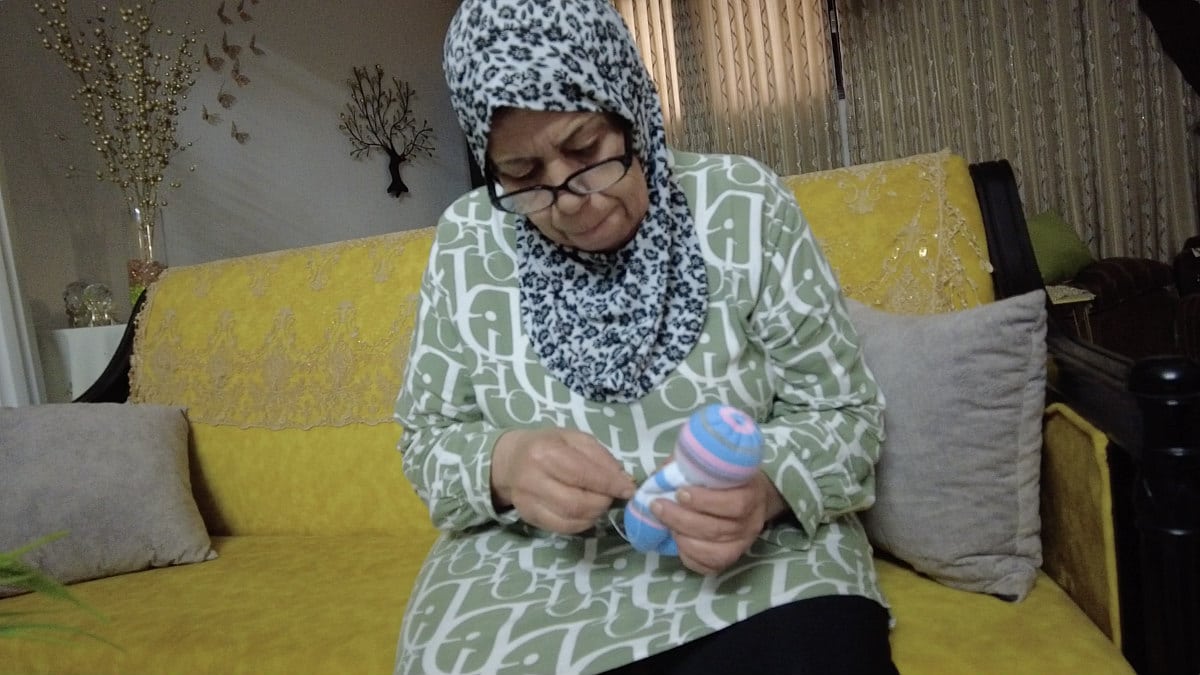
Even if artists from the West Bank can access world-class training for free, funded by those public programs, it’s almost impossible for these future professionals — actors, theatre directors, playwrights, scenery designers, technicians, drama production personnel, or others — to make a living without traveling overseas. Paradoxically, there’s often more creative control for artists at the helm of their own ship, but every job in arts and culture is crushed under the weight of the Occupation.
The challenges of travel and the increasing reality of displacement from their homes mean cultural workers in the West Bank are balancing a lot, even before the challenge of making a living from a creative career. They invariably lack the connections and strategy to access opportunities, by definition, cut off from the world, and without relationships with commercial artists who are around when you live in a regular place not under Occupation, like New York or Tokyo.
The result is the ongoing cultural brain drain — artists leaving the West Bank to make a living. It’s not an accident; in fact, it’s a part of the playbook in war zones.
First, artists leave. Following them, academics, skilled professionals, and intellectuals also depart due to the lower quality of life resulting from a lack of arts and a desire to raise their families in an environment with access to creative culture. Less educated people are left to themselves, a vulnerable group, with shortages in crucial sectors like healthcare, and a swift downward spiral of economic and social conditions in the wake of the exodus. I recently had dinner with someone from the UN who witnessed the cultural brain drain from Tehran and its aftermath. He confirmed my analysis that we are witnessing the same pattern here.
Right now, most of the West Bank’s best artists have left – many are on stages near you, from Scandinavia to Scotland, Berlin to Barcelona. They’re earning a living while doing artistic advocacy, gifting their talent to you. Nobody can blame them for taking this path – and escaping the turmoil in the West Bank — but what about the community here?
Palestinian people need the arts more than ever. They richly deserve the talents of the West Bank’s finest creative people, but can’t compete with Western audiences.
The West is winning, as the best have left. But arts are not a luxury in a war zone: they’re essential, not only for trauma relief, but to create a high-level conversation between artists and audiences, whether that’s readers resonating with a poem, or a discussion, in Arabic, to reflect on a film screening. The creative arts are an outlet for emotions and create a space to process, while supporting cultural expression, rekindling curiosity, joy, and social cohesion. They are an essential path to social justice — to a solution here in the West Bank.
One artist from The Cultural Salon’s roster is Elias Halabi. Born and raised in Bethlehem, Elias is a photographer, archivist, and visual storyteller. He was baptized at the Church of the Nativity, like his father and grandfather. He became the official photographer at this UNESCO World Heritage site due to his skills and relationships in the parish. He captures the complexities of Palestinian life, focusing his lens on the church and the parish, as a photographer and now also as a community archivist.
Recommended Read: The Art of Existence: A Palestine Museum in the U.S.
Halabi is an integral, trusted, and respected member of the town, equally with Bethlehem’s Muslim and Christian communities. He’s in a unique position to access and archive the family photos of Bethlehem. However, he couldn’t afford to purchase the tools needed to archive at a professional level, such as a high-resolution scanner or acid-free folders to preserve vintage photographs.
The Cultural Salon connected Halabi to seed capital to purchase these items, and hosted conversations with professional conservators from The Metropolitan Museum of Art in New York, Harvard University, and the Bodleian Library at Oxford University, specializing in preserving daguerreotype photos, paper maps, and ancient books.
In this way, The Cultural Salon sourced mentors and seed capital for a uniquely valuable archive of Bethlehem’s family photos to be established, and its time-dependent work, as so many Bethlehemite Christian families have moved to the States in the last two years. It was urgent to digitize family collections before they decentralize out of Bethlehem, and are scattered internationally, forever.
We also created a strategy for a documentary feature film that Halabi directed, leading to its upcoming premiere at the Toronto Palestine Film Festival, and we’re working on a coffee table book to share photos from his archive. It’s an integrated 360-degree strategy to create a sustainable career for Halabi, share his work with a broad audience in the West Bank and internationally, and provide a way for him to remain rooted and creative in Bethlehem.
We’re currently developing strategies for a literary hub in Nablus, a storytelling crafts project in Jenin, and a culinary initiative by a Bedouin chef sharing her ancient 4,000-year-old family recipes.
According to the UN, if one generation of Palestinian artists skips its creative lineage, the culture is forever, irrevocably damaged.
Not on our watch.
The Cultural Salon creates sustainable strategies for artists to remain in the West Bank – we’re the only organization focused on reversing the cultural brain drain. If this positive mission resonates with you, reach out to offer your skills and support, and to set up a regular donation at TheCulturalSalon.org website, where you’ll find inspiring stories and videos of the work produced by our incredibly talented roster of artists. We also invite you to submit questions, offers, or ideas via the contact form on our website.
The writer’s name and location have been withheld to protect their privacy and security.
